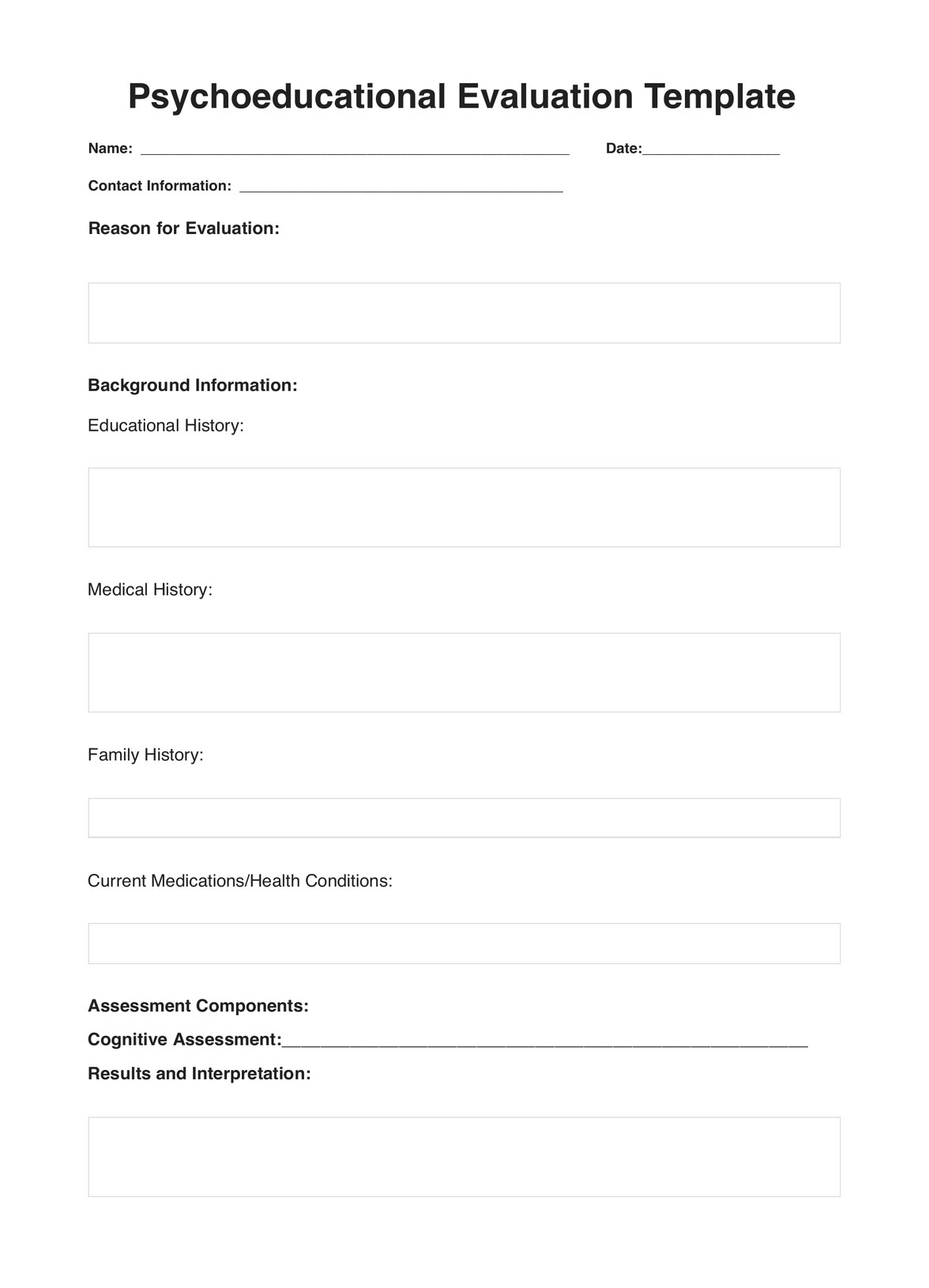Evaluations may be requested when a student struggles academically, shows behavioral or emotional challenges, or concerns developmental delays. They can also be asked for college admissions testing accommodations and workplace accommodations.

Get insights into learning challenges with comprehensive Psychoeducational Evaluations. Improve healthcare outcomes today.
Evaluations may be requested when a student struggles academically, shows behavioral or emotional challenges, or concerns developmental delays. They can also be asked for college admissions testing accommodations and workplace accommodations.
Assessments typically include cognitive tests (e.g., IQ tests), academic achievement tests, behavioral checklists, social assessments, observations, and interviews.
A comprehensive report is generated, highlighting strengths, weaknesses, and recommendations. This report develops Individualized Education Plans (IEPs), 504 plans, or other tailored interventions.
EHR and practice management software
*No credit card required
Free
$0/usd
Unlimited clients
Telehealth
1GB of storage
Client portal text
Automated billing and online payments